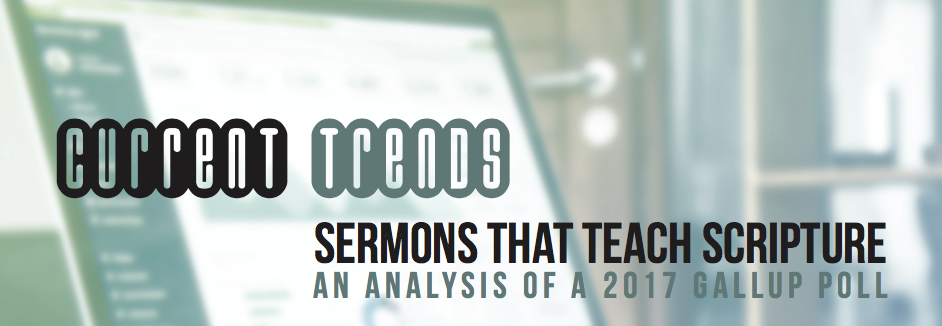Despite a new wave of contemporary church buzzwords like relational, relevant, and intentional, people who show up on Sundays are looking for the same thing, which has long anchored most services: Bible-based in-depth preaching. According to Gallup researcher Lydia Saad, who conducted her poll in 2017, the number one reason Americans go to church today is “Sermons that teach about Scripture”.
Saad found that 82% of Protestants and 76% of all regular worshipers consider biblical lessons as the major factor that draws them into church services. Another factor is application, as evidenced by the 80% of Protestants and 75% of all other denominations value sermons that connect faith to everyday life. Protestants were more likely to cite the importance of sermon content than churchgoing Catholics, about two-thirds (66%) of whom say it is what draws them to church.
Preaching on Scripture Most Important Factor
Preaching on Scripture and its application ranked above factors such as children’s programs (68%), community outreach (61%), and social activities (49%) among Protestants. Churchgoers’ focus on Sunday sermons reveals a hopeful indicator for preachers. Although believers/non-believers’ media diet increases and attention spans decrease, they nevertheless desire the straightforward preaching of the Word.
Even in a distracted, outraged, shallow culture, people hunger for something rare: the focused, balanced, in-depth preaching of the Word of God. This hunger has put more pressure on preachers to ensure their sermons engage listeners by avoiding corny jokes, clichéd illustrations, and unsound teaching. Those Christians in the 20s to 30s age bracket, in particular, are on guard against such teaching: Nearly 4 out of every 10 practicing millennial Christians fact-check sermon claims on Google during the sermon, according to a 2013 Barna Group survey.
The previously mentioned Gallup survey found that people in the pews care far more about What is being preached than Who is preaching it. Only half of Protestants (53%) and Americans overall (54%) said they attend church because of “dynamic religious leaders who are interesting and inspiring.”
Shift Towards Rigorous Teaching
According to this Gallup survey more and more churches have discovered that theological depth appeals to both Christians and non-believers. Many larger and smaller churches have shifted toward rigorous teaching. In other words, those churchgoers for whom sermons were being “dumbed down” are not dumb at all. Current church leaders realize that their congregation must be interested in the truth, for, if not, they would be out golfing, or fishing, or staying home. There is a power that comes through the preached Word of God that even reading the inerrant Word cannot replace.
Conclusion
God speaks through the preached Word of the Bible. In fact, it is the major tool of communication by which He addresses individuals today. Biblical preaching is not entertaining your audience with personal anecdotes, overused jokes, and humorous stories. Through the preaching of Scripture, God encounters men and women to bring them to salvation. Something awesome happens when God confronts an individual through preaching and seizes him by the soul. May the church return to preaching in-depth Scripture sermons that transform the hearts and souls of their hearers.

